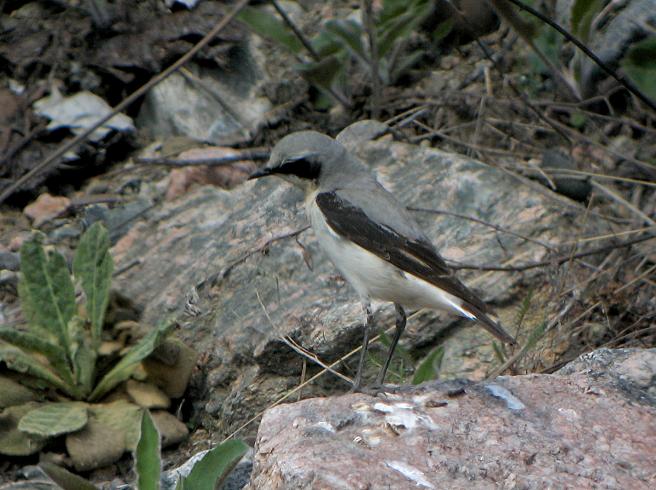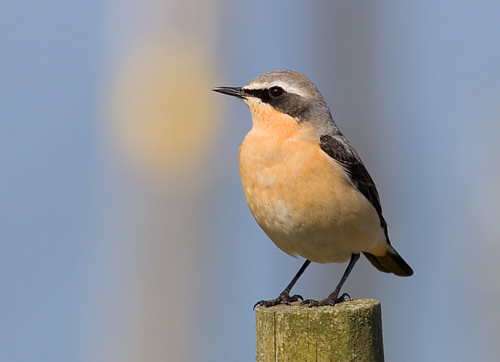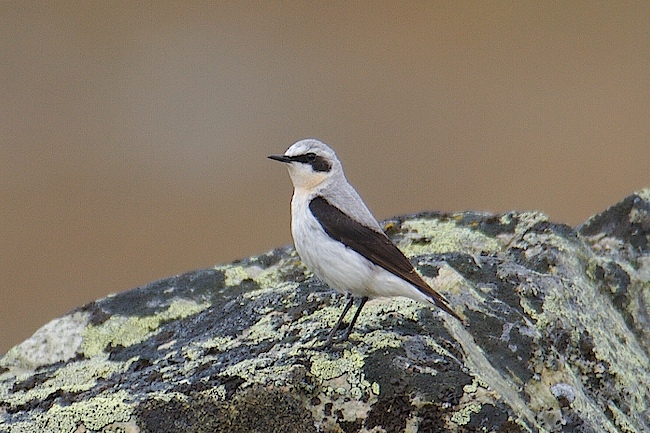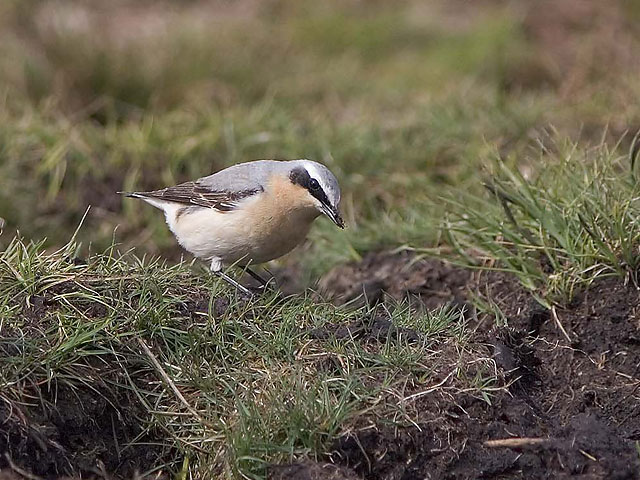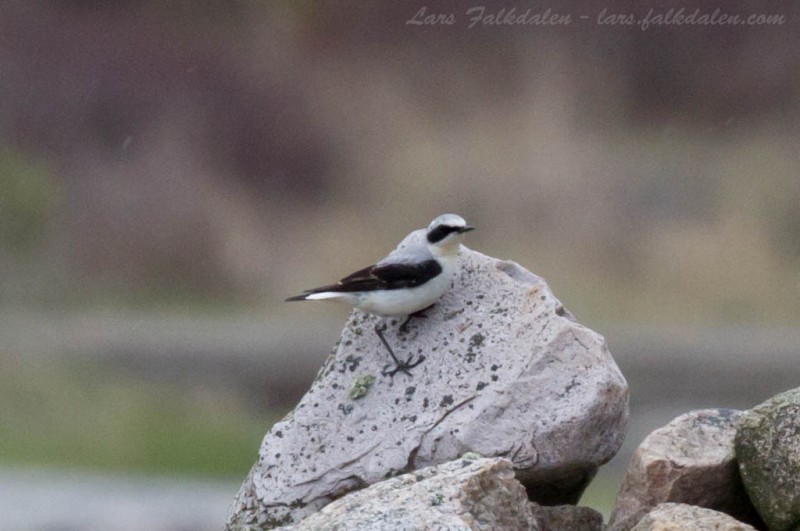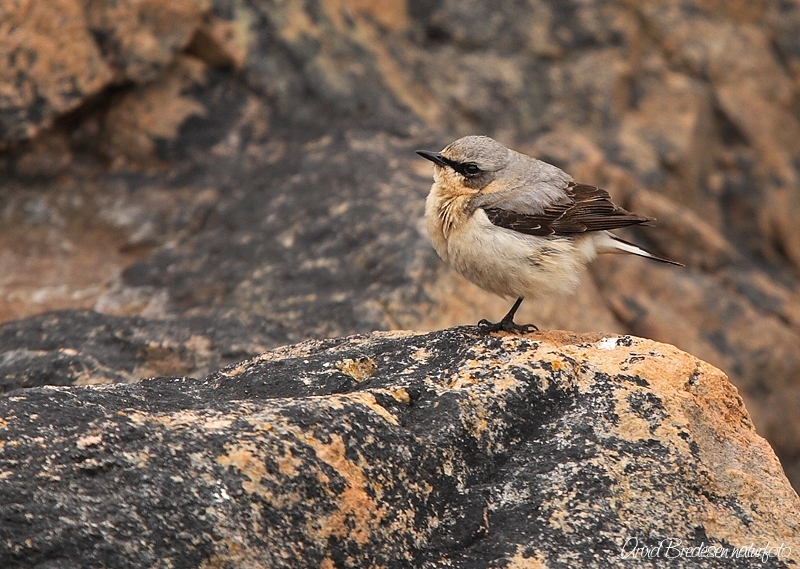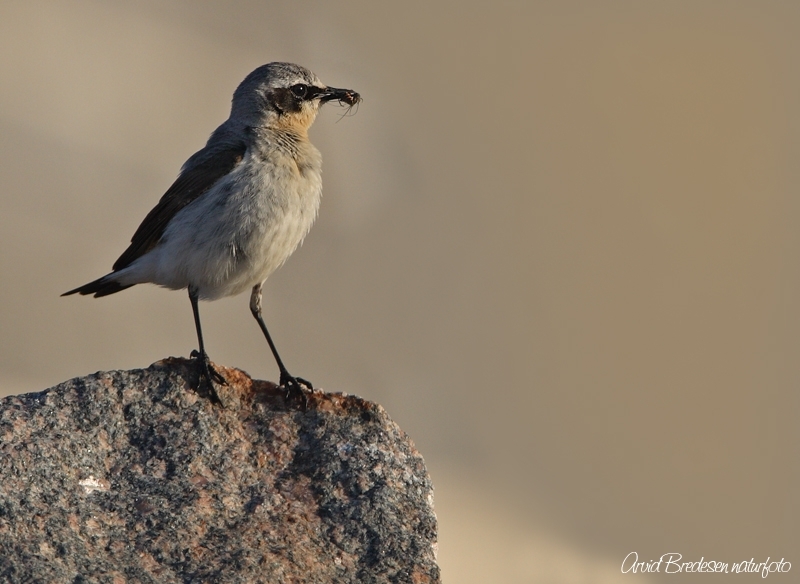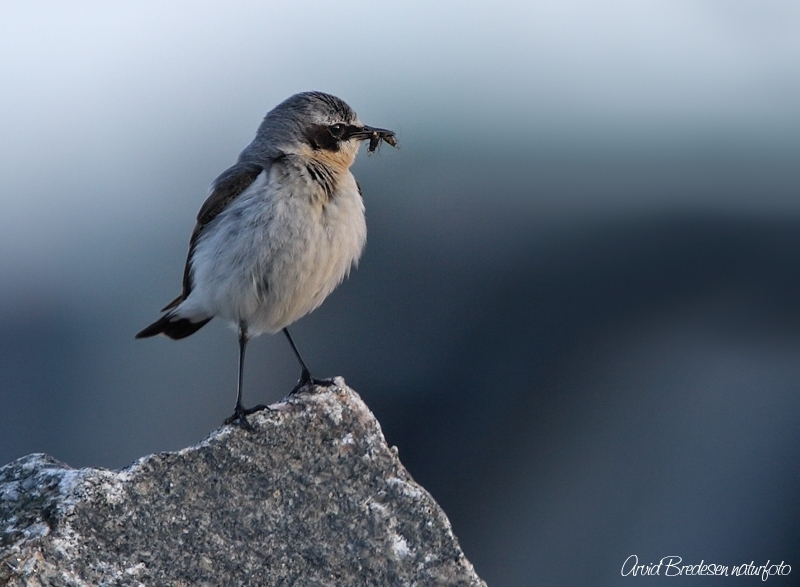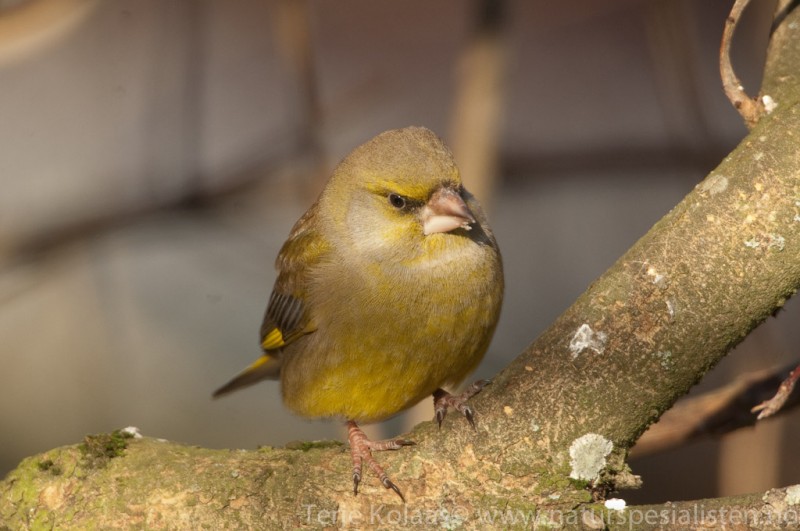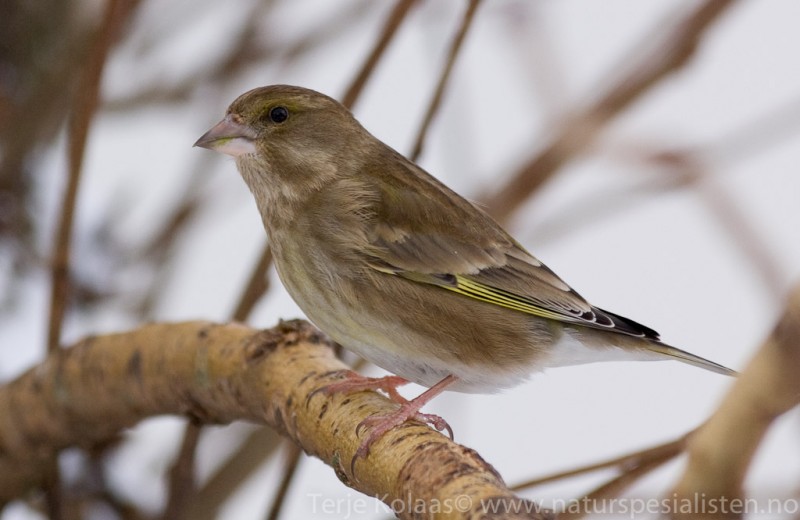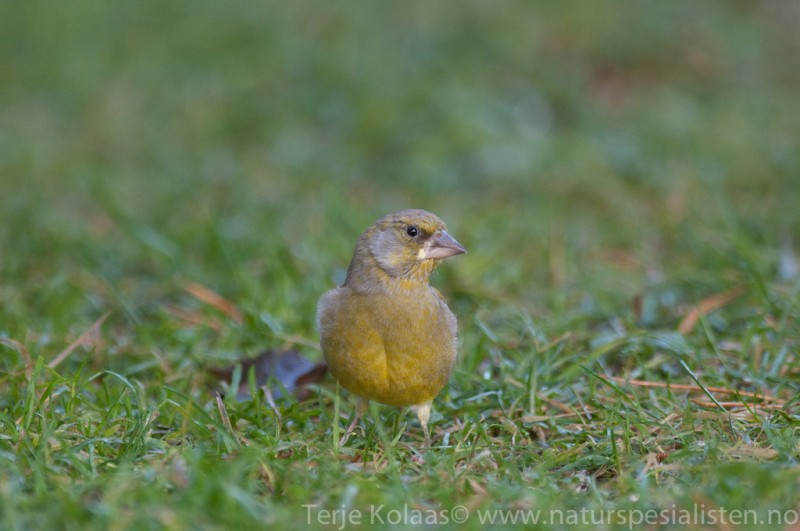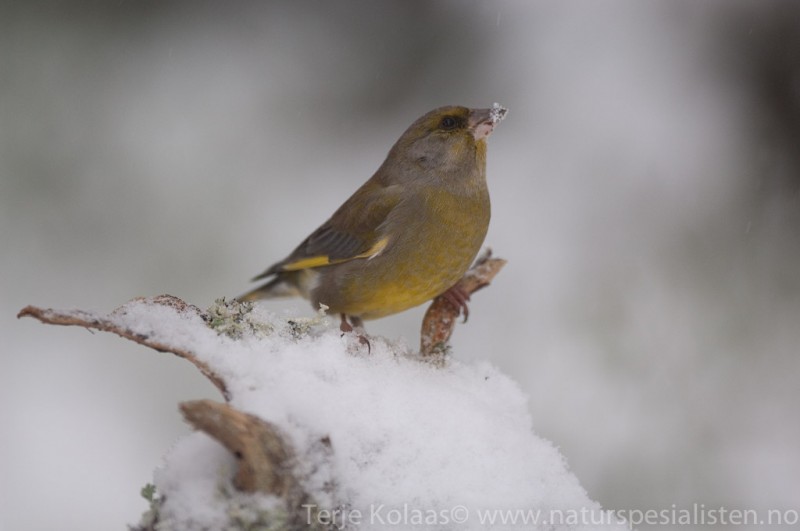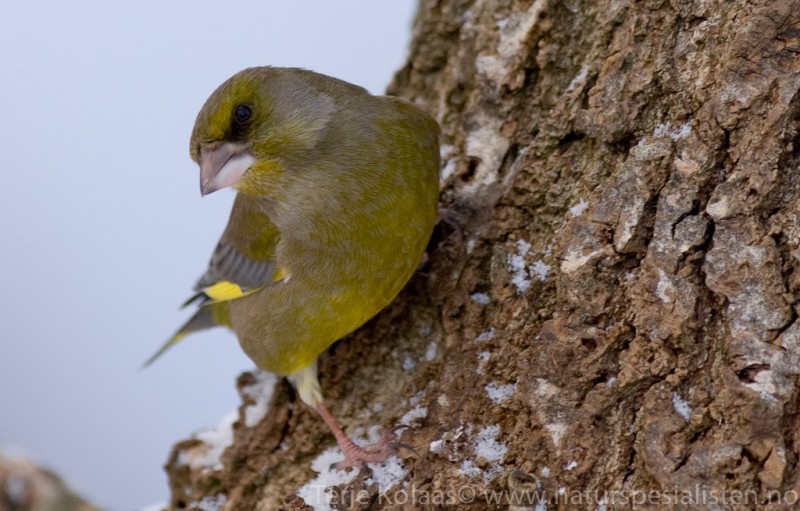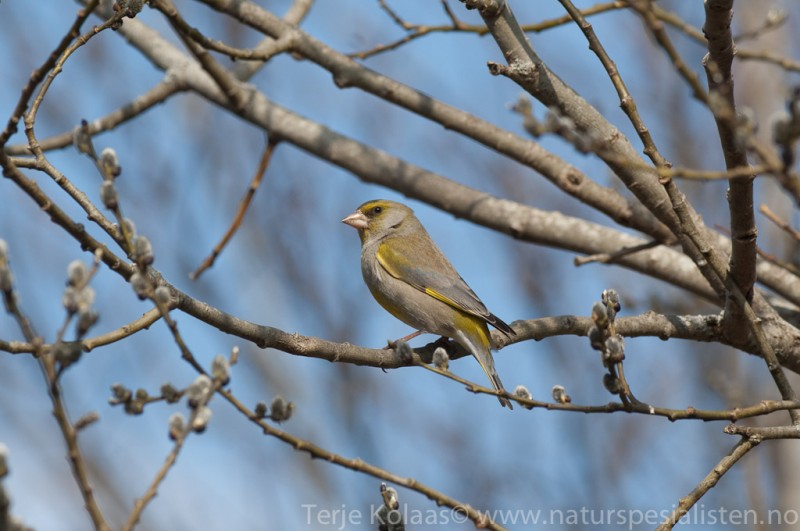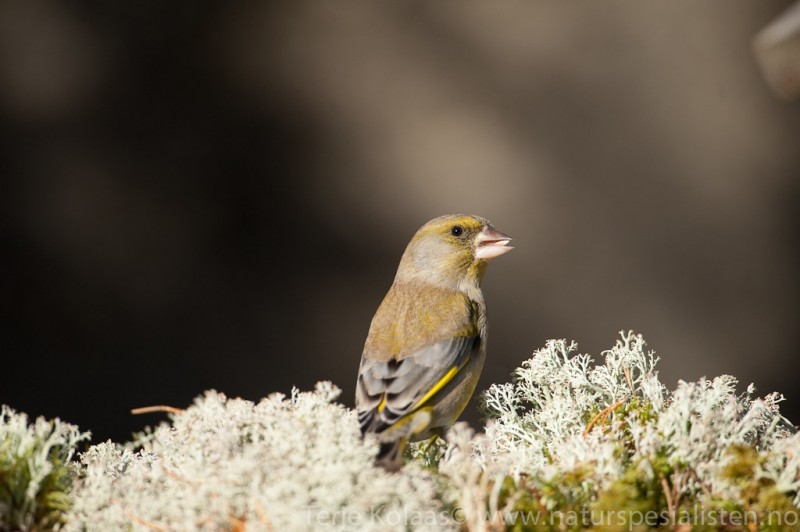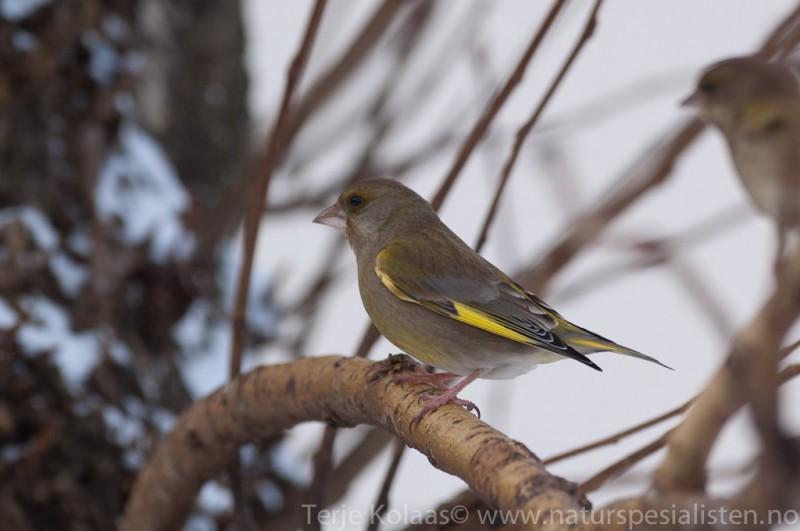Wheatear (Oenanthe oenanthe)
Greenfinch (Chloris chloris)
Epitome of wheatears. Male with grey back, white supercilium, black mask and dark wings. Females have less contrast, are more brownish than grey, the supercilium is fainter and the black mask is missing. Rump white and tail white with black "T" in all plumages. The black in the middle tail-feathers is always at least as long as the width of the black terminal tail-band. Pale individuals can be mistaken for Isabelline Wheatear, but note that the supercilium is buff between eye and base of bill.
Sound:Contact and alarm call a high pitched, sharp "weet", followed by a hard "check", like hitting two rocks together. The "weet" sound is much sharper than the similar sound in Whinchat and Stonechat. Wheater usually repeats the "weet" sound more frequently than the "check" sound. The "check" of Stonechat is less pure and more gritty. The Wheatear song consists of short phrases with marked pauses. Each phrase is often introduced by the "weet" sound, then followed by hastened, creaking, rattling and warbling sounds of 1-2 seconds duration. The "check" sound is also often included in the song.
Song:
Distribution:
Wikipedia: map (se also Xeno-canto below)
Ecology:Birdlife ecology
Links:
Observation.org Latest observations
Image search Flickr NB! May give other species
CCPlumage green, grey and yellow. Note bright, yellow base of primaries and sides of tail in all ages and plumages. Deep and heavy conical bill. Tail forked and quite short. Plump build. Female more grey than male, with back diffusely streaked in brown and underparts greyish. Juveniles similar to females, with even more drab colours and heavier streaking (also on underparts). Strongly undulated flight. Often appears somewhat clumsy when trying to perch on feeders etc.
Sound:Song composed of various sequences of linked sounds, repeated in a vibrating manner; "trrrrrrrrr", "chechechecheche". Sometimes resembles Brambling when making the wheezy "rrrrrrrrr" sound, but differs in being harsher and by "pulling" the pitch downwards (or sometimes upwards) at the end. Contact call a fairly resonant "chep-chep", resembling Redpoll, but less nasal and with a fuller tone. Also a sharp, drawn, ascending "kooeee", (perhaps not obviously recognized as a finch).
Song:
Distribution:
Xeno-canto: map
Ecology:Birdlife ecology
Links:
Observation.org Latest observations
Image search Flickr NB! May give other species
CC
 English
English Albanian
Albanian
 Armenian
Armenian
 Bulgarian
Bulgarian
 Catalan
Catalan
 Croatian
Croatian
 Czech
Czech
 Danish
Danish
 Dutch
Dutch
 Finnish
Finnish
 French
French
 Georgian
Georgian
 German
German
 Greek
Greek
 Hungarian
Hungarian
 Italian
Italian
 Latvian
Latvian
 Lithuanian
Lithuanian
 Macedonian
Macedonian
 Norwegian
Norwegian
 Polish
Polish
 Portuguese
Portuguese
 Romanian
Romanian
 Russian
Russian
 Sami : Lule sami
Sami : Lule sami
 Sami : North sami
Sami : North sami
 Sami : South sami
Sami : South sami
 Scientific names
Scientific names
 Serbian
Serbian
 Spanish
Spanish
 Swedish
Swedish
 Ukrainian
Ukrainian


